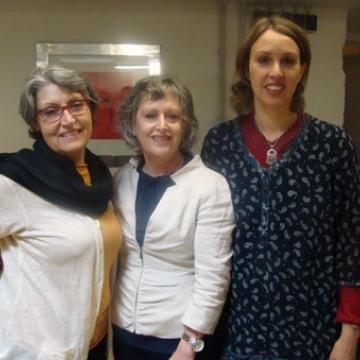
Debra Ballinger Bernstein began her tenure with URI as Associate Executive Director in November 2009. She brings to URI extensive experience in strategic planning, evaluation, and organizational and fund development. She was raised Catholic with a lifelong commitment to social justice and an enduring interest in other faith traditions’ teachings on justice. Ms. Bernstein also has studied mindfulness mediation and continues her exploration of Jewish traditions, an interest that was nurtured by her late husband. Ms. Bernstein has worked her entire career in the nonprofit sector in executive management and as a consultant for social change organizations. Her approach focuses on increasing impact and sharing best practices in the social sector through strategic long-term visioning, building and repositioning organizational assets, and creating innovative solutions for external and internal challenges. She has had the good fortune to work with a broad range of groups that have made lasting contributions to interfaith organizing, affordable housing, health care, workforce development, and the arts. She also has specialized in working with organizations in transition.


